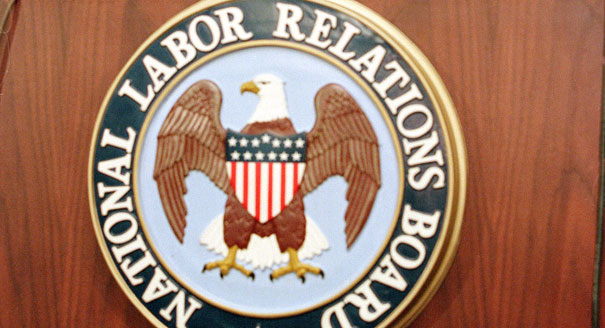

Share
TruStone Financial Federal Credit Union broke the law when it closed two branch offices staffed by union employees, reopened two new branches nearby, and then declared the new locations would be non-union. That’s the ruling released April 13 by Christine E. Dibble, administrative law judge for the National Labor Relations Board in Washington, D.C.
Office and Professional Employees International Union Local 12 has represented TruStone workers since 1979.
TruStone notified OPEIU Local 12 in 2015 that the credit union would close its Golden Valley and Apple Valley locations and open two new branch offices nearby. TruStone said the Golden Valley and Apple Valley union employees could apply to transfer to another bargaining unit location or apply for a job at the “new” facilities, which the credit union declared would be non-union.
OPEIU Local 12 filed unfair labor practice charges with the National Labor Relations Board.
The NLRB’s April 13 decision cited previous precedents and the facts of the case and declared, “an employer must apply an existing collective-bargaining agreement to a relocated facility if the operations at the new facility are substantially the same as those at the old facility…”
The NLRB judge ruled that TruStone’s claim that the relocated branch offices were “new” facilities was a “faulty semantic construct.”
To remedy TruStone’s unlawful actions, the NLRB judge ordered:
- TruStone must apply its collective bargaining agreement with OPEIU Local 12 to the two relocated branch offices;
- TruStone must offer four employees “who were unlawfully denied transfers to those facilities immediate transfers to those facilities, if they so choose;”
- TruStone must “make affected employees [at the relocated facilities] whole for any losses of earnings or benefits they may have suffered because of the failure to apply the bargaining agreement to them…”
The NLRB judge also ordered TruStone to post — at all its facilities — a notice announcing that “the National Labor Relations Board has found we violated Federal labor law…” The judge’s order specified that the required notice spell out nine actions TruStone would no longer pursue, including “WE WILL NOT modify the existing bargaining unit in our collective-bargaining agreement with OPEIU, Local 12 (the Union), without the consent of the Union.”
“We’re very happy with the decision; It validates what we were fighting for since last summer,” said Traci Murphy, OPEIU Local 12 union representative. “It sends a strong message to TruStone… that its actions are illegal.”
Murphy said the NLRB ruling after so many months “also speaks to the strength of our bargaining unit at TruStone that they have stuck with this fight and they will not be intimidated by their employer’s behavior.”
The remedies ordered by the NLRB administrative judge could be long in coming, however, because labor law allows TruStone up until May 11, 2016 to file an appeal for review by the full NLRB, which could take many, many more months to resolve.
Local 12’s Murphy said she expects TruStone will appeal the NLRB judge’s decision.
In the meantime, in the wake of the NLRB judge’s ruling, the Region 18 office of the NLRB in Minneapolis has renewed its request for a federal district court in Minneapolis to issue an injunction in the case and order TruStone to immediately correct its actions and follow its collective-bargaining agreement with OPEIU Local 12.
TruStone was founded in 1939 as the Minneapolis Federation of Teachers Credit Union. Over the years, the credit union changed its name and broadened its membership base. Local 12’s Murphy said few if any teachers remain on the credit union’s board.

